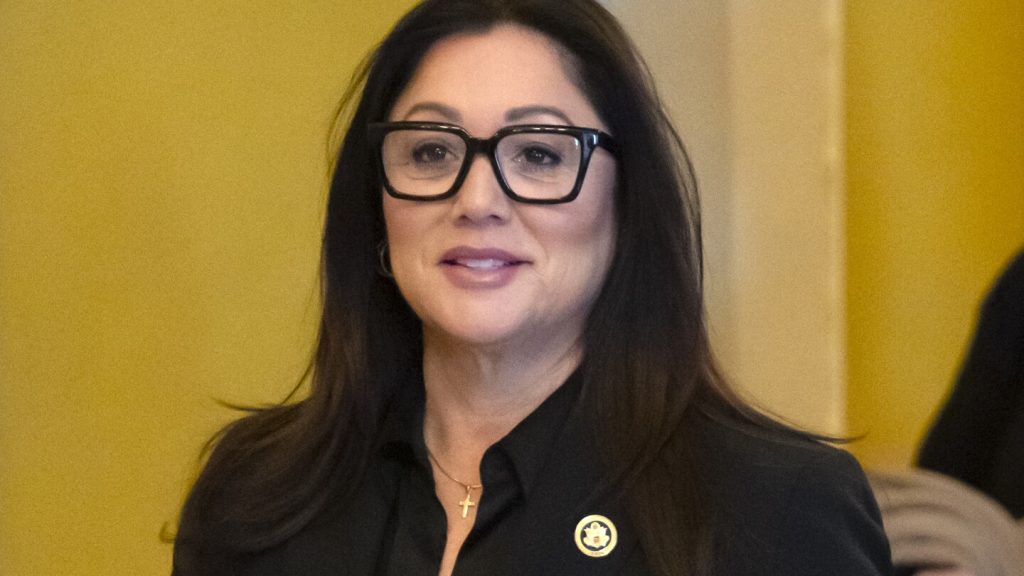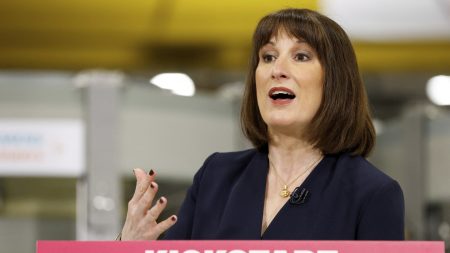A New Face for Labor: President Trump’s Nomination of Lori Chavez-DeRemer
AUnexpected Choice: Lori Chavez-DeRemer’s Nomination
President Donald Trump’s nomination of Lori Chavez-DeRemer for Labor Secretary has sparked both intrigue and controversy within the Republican Party. Unlike traditional Republican nominees, Chavez-DeRemer, a former congresswoman from Oregon, brings a unique background that challenges conventional GOP norms. As the daughter of a lifelong Teamsters member, a small business owner, and the former mayor of a rapidly growing suburb near liberal Portland, Oregon, her profile is far from typical for a Republican appointee. Her past legislative actions, including co-sponsoring union-backed legislation, have further complicated her position within the party.
Trump’s Strategic Move: Shifting the GOP’s Labor Narrative
The nomination of Chavez-DeRemer is part of a broader strategy by President Trump and his allies to redefine the Republican Party’s relationship with labor unions. Historically, the GOP has been scrutinized for its anti-union stance, but Trump aims to change this narrative by reaching out to working-class voters who have traditionally supported Democrats. Sen. Markwayne Mullin, a strong supporter of Trump’s nominees, emphasized this shift, stating that Chavez-DeRemer is the ideal candidate to bridge the gap between the GOP and labor unions. Her nomination reflects an effort to reshape the party’s image, appealing to a new coalition of voters that includes labor union members.
Mixed Reactions Within the GOP
While some Republican senators, like Mullin, see Chavez-DeRemer as a strategic asset, others are more skeptical. Sen. Rand Paul, a member of the Senate committee overseeing labor issues, has expressed concerns about her support for the PRO Act, a law that would overturn state right-to-work laws. Despite these reservations, Paul acknowledges that Chavez-DeRemer is likely to be confirmed with bipartisan support, predicting that she could lose around 15 Republican votes but gain up to 25 Democratic votes. This unusual bipartisan dynamic highlights the contentious nature of her nomination.
A Labor Advocate in a Republican Administration
Chavez-DeRemer’s support for organized labor is well-documented. As a member of the House, she frequently met with union members, praised the role of unions in her district, and distanced herself from Republican-led efforts to criticize labor unions. Her stance has earned her the support of prominent union leaders like Randi Weingarten, the president of the American Federation of Teachers, who sees her nomination as a positive step toward worker empowerment. While Chavez-DeRemer has remained quiet ahead of her confirmation hearing, her past statements and actions suggest she will continue to advocate for labor rights.
The Changing Face of the Republican Party
The nomination of Chavez-DeRemer reflects a larger shift within the Republican Party, particularly among its more populist factions. Conservative think tanks and policymakers have been working to reframe the GOP’s economic platform, moving away from a strictly pro-business stance toward one that prioritizes workers and communities. This shift is driven in part by the failures of globalization and the realization that workers have not benefited equally from economic policies. Sen. Josh Hawley, a populist Republican, has expressed hope that Chavez-DeRemer’s nomination will signal a renewed focus on creating well-paying union jobs and protecting labor rights.
A New Era for the Labor Department
If confirmed, Chavez-DeRemer will face significant challenges, including growing union organizing efforts, debates over remote work, and the impact of automation on the workforce. Her nomination has already sparked hope among labor advocates, who see her as a potential ally in advancing worker rights. While some Republicans remain uneasy about her union-friendly stance, others acknowledge the strategic importance of her nomination in appealing to a broader coalition of voters. As the GOP continues to evolve, Chavez-DeRemer’s tenure as Labor Secretary could mark a turning point in the party’s approach to labor issues.








